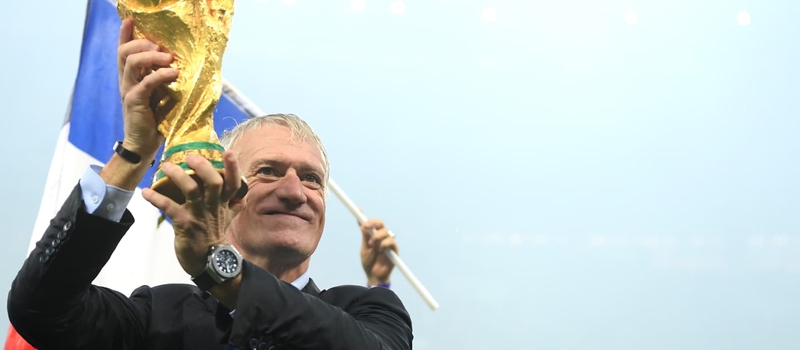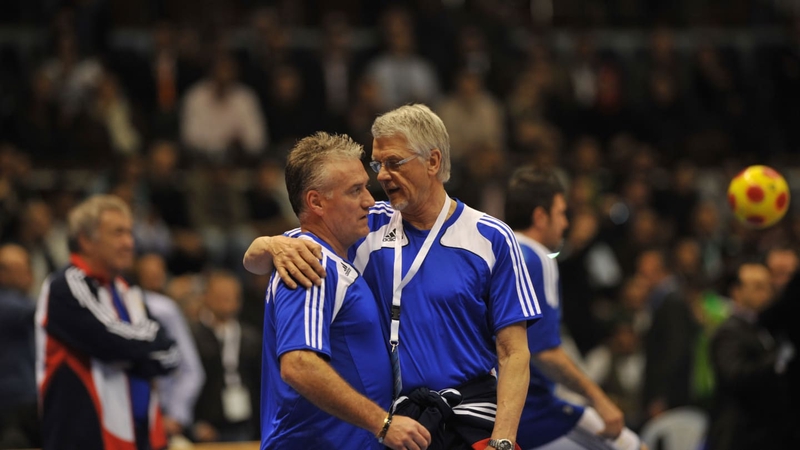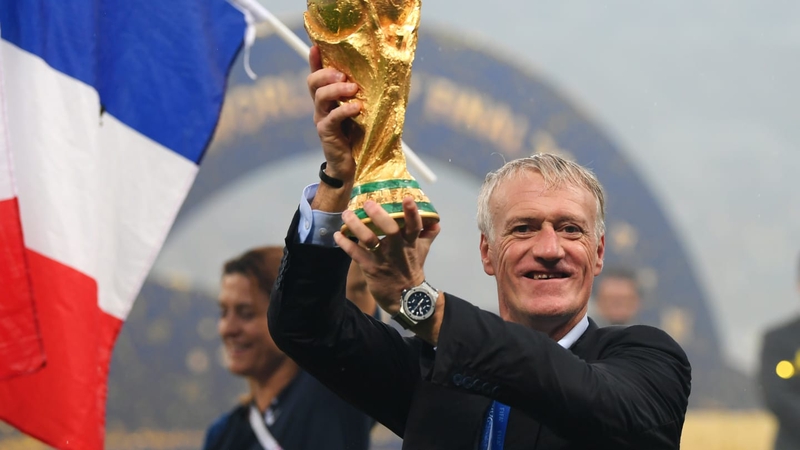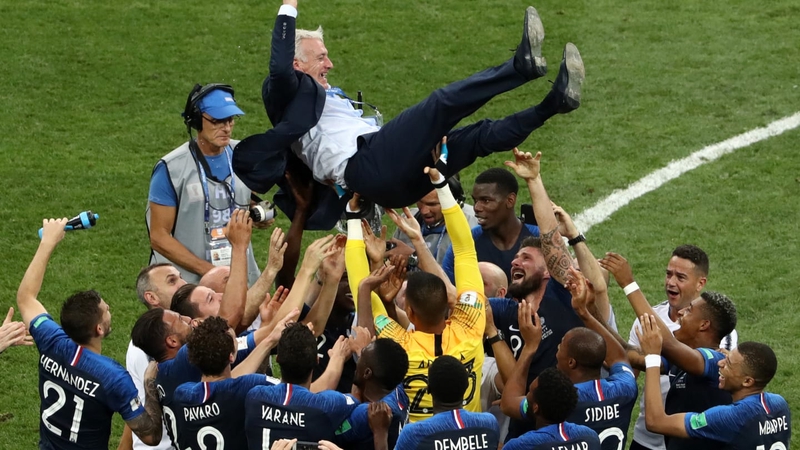
Didier Deschamps became third man to win World Cup both as a player and a coach
France coach is a nominee for The Best FIFA Men's Coach award
FIFA.com reveals his seven secrets of success
In the world of mathematics, seven is regarded as a figure with unique properties. And in gambling it is known as a lucky number. France coach Didier Deschamps can relate to that, given the good fortune that No7 has brought him throughout his career.
In putting together the finest record that French football has ever seen, Deschamps has drawn on his appetite for hard work and his talent. The mastermind of France’s triumph at the 2018 FIFA World Cup Russia™, the former Bleus No7 takes a scientific approach in pursuit of victory. An entirely logical inclusion on the list of nominees for this year’s The Best FIFA Men's Coach, he is the third man in history to win the World Cup as a player and then a coach, after Brazil’s Mario Zagallo and Germany’s Franz Beckenbauer.
“They were two great players, whereas I wasn’t so good on the pitch. I managed to get by though,” he smiled in a press conference following Les Bleus’ second world title win. There was far more than luck to Deschamps’ ability to just “get by”, as FIFA.com reveals in the shape of seven key factors in his success.

1. A player and a coach
It came as no surprise to anyone to see Deschamps move into coaching, least of all to his former team-mates, who quickly realised he was a born leader. Deschamps was only 19 when he pulled on the captain’s armband at Nantes for the first time. He continued to wear it for the remainder of his 16-year playing career, for his clubs and his country, as coach after coach recognised his ability to get their words across to his team-mates.
2. A Jacquet admirer
Deschamps has learned from the coaches he has come across, none more so than from Aime Jacquet (pictured above with Deschamps), the man who helped him lift the World Cup Trophy in 1998. “He performed a miracle with us,” said Deschamps at the end of Russia 2018. “I call him ‘God’. I’ve got a huge amount of respect for him as a person. He changed our lives and he’s been a role model for me.” That respect is mutual; the former national team coach has always regarded Deschamps as his natural heir.
3. A champion at club level
Having won a string of titles as a player, Deschamps quickly showed his hunger for more after hanging up his boots. After steering Monaco to the UEFA Champions League final in 2003 and guiding Juventus straight back to Serie A in 2006, he oversaw Marseille’s first French title win in 18 years in 2010.
4. A winning habit
His career as Bleus coach has seen him lead the national team to the quarter-finals at Brazil 2014, to the final of UEFA EURO 2016, and then to the top of the world in 2018. Of the 83 matches he has presided over since taking on the job in 2012, he has won 53, drawn 15 and lost 15.

5. An aversion to defeat
“I hate losing. I can’t lose a game and then go around with a smile on my face,” said Deschamps, in conversation with BeIN Sports. “It always annoyed me when I saw team-mates not reacting like me, which is why I often preferred to shut myself away after a defeat. If I hadn’t, then I would have said a few things out of turn.”
6. An ability to learn from failure
Though a serial winner, Deschamps has also experienced his fair share of disappointment. He has always learned from it, however. Five years on from France’s traumatic failure to qualify for USA 1994, he became the first Frenchman to hold the World Cup aloft.
Twenty years on from that landmark achievement, he has once again shown his ability to bounce back, as France made up for missing out on the EURO crown on home soil in 2016 in the best possible way. “Before that final defeat to Portugal I built the whole thing up and focused on the emotional side of things,” said the two-time world champion after the Russia 2018 Final. “Here, I changed my focus and kept it simple.”
7. An eye on the future
Deschamps has always made a point of not going on about his glorious past to his players. “1998 is history and I don’t live in the past,” he told FIFA.com during Russia 2018. “My players have their own story to write.”

Like my post?
Please like for more :D
Comments